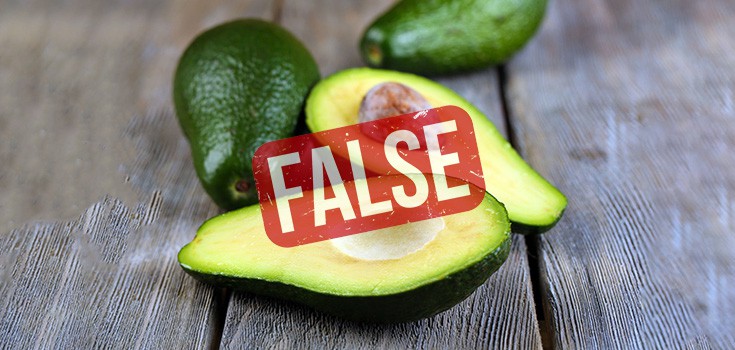Why Eating Fats Really Doesn’t Make You Fat

Does eating fat really make you fat? Is butter bad for you? Store shelves are still loaded with low-fat and-fat free products, so it seems that many people are on board with this notion. But recent evidence is showing that we’ve been told a big fat lie, and that eating fat does not cause weight gain or disease anymore than eating chicken can turn you into a bird.
Dr. Mark Hyman, the physician called in to help President Clinton recover from his bypass surgery, warns that it isn’t the fats, but rather processed carbohydrates that make us fat and sick.
He points to a review of data from the British Journal of Medicine that shatters the myth that fat causes obesity and heart disease. Researchers found that while lowering saturated fat in the diet may lower total cholesterol, it’s actually lowering the good kind of LDL cholesterol, and not the bad kind.
The green light on eating fat given by Dr. Hyman even includes saturated fat. Another one of the studies he notes refuted the idea that reducing dietary saturated fat improves cardiovascular health.
Researchers summarized the evidence related to dietary saturated fat and risk of coronary heart disease, stoke, and cardiovascular disease. They found that there was no significant evidence for concluding that dietary saturated fat is associated with an increased risk of cardiovascular disease or coronary heart disease.
One of the characteristics of dietary fat is its ability to make people feel full after eating a normal-sized meal. When there is less fat consumed, the tendency is to try to find the feeling of satiety by eating more starchy and sugary foods.
But since these cannot match the feelings produced by fats, the outcome is to eat even more and more starches and sugars, which can lead to tremendous weight gain.
Interestingly, a study from the University of California found that many people who have a heart attack also have normal overall cholesterol levels. But Type 2 diabetes is prevalent in this cohort, probably the result of eating so many processed carbohydrates.
This notion has been repeated in recent years time and time again, even by universities like Harvard.
What Fats Does Dr. Hyman Suggest We Eat?
Here’s his list:
- Avocados
- Nuts, including walnuts, almonds, pecans, but not peanuts
- Seeds including pumpkin, sesame, chia and hemp
- Fatty fish including sardines, mackerel, herring, and wild salmon
- Extra virgin olive oil
- Grass-fed sustainably raised animal products
- Saturated fats such as extra virgin coconut butter
Read: Leading Heart Expert – Fats are NOT to Blame for Heart Disease
“The American public became participants in the largest uncontrolled experiment in history.” – Nutrition Authority Kris Gunnars
The quote above, taken from an unpublished article on Healthline called “Top 9 Biggest Lies About Dietary Fat and Cholesterol,” referred to the fact that we have been advised for more than four decades to avoid saturated fat and cholesterol, even though there was no solid evidence to support that advice.
Gunnars noted that the experiment has not turned out well, and we are still suffering the consequences in the form of the obesity epidemic, which began shortly after the low-fat guidelines were issued (followed by the diabetes epidemic).
While these events are only correlational, it seems that low-fat eating has led to people dismissing such healthy whole foods as butter, meat and eggs, and replacing them with processed foods high in refined carbohydrates and low on the nutritional scale.
Another doctor, Weston Price, knew all this as far back as the 1930’s. He was a dentist who searched for an answer to tooth decay in many parts of the globe by studying the diets of indigenous people.
He found that butter and other saturated fats were staples in the diets of populations displaying supreme health. When butter and other saturated fats were a central ingredient in the diet, children grew to be robust, sturdy and free of tooth decay.
The dietary guidelines of The Weston Price Foundation were posted in the year 2000, before the natural health movement got underway, and they are echoed in many of today’s natural health articles.
The Weston Price Foundation’s guideline for fats is: Use only traditional fats and oils including butter and other animal fats, extra virgin olive oil, expeller pressed sesame and flax oil, and the tropical oils — coconut and palm.
Dr. Hyman’s advice sounds a lot like the advice from the Weston Price Foundation, doesn’t it? It might be time to adopt a new way of thinking. Don’t fall for the fat-cholesterol myth any more.

“Researchers found that while lowering saturated fat in the diet may
lower total cholesterol, it’s actually lowering the good kind of LDL
cholesterol, and not the bad kind.”
I’ve always heard that LDL was the “baddie”here. And that HDL was the good kind of cholesterol. So what is the “good kind” of LDL cholesterol?
There’s a fluffy LDL, and a small, dense LDL. The fluffy LDL is the good one, the small, dense is what gets stuck in the arteries, etc.
Okay, thanks. I figured that’s what the writer probably meant. Maybe she could have elaborated on the “fluffy” in the article, though.
There is no statisticaly significant correlation between any type of cholesterol and heart attack or stroke. None. All types of fat are healthy with the exception of trans fat. Eat more fat, lower carbs, and cut out refined carbs altogether to attain your best health 🙂